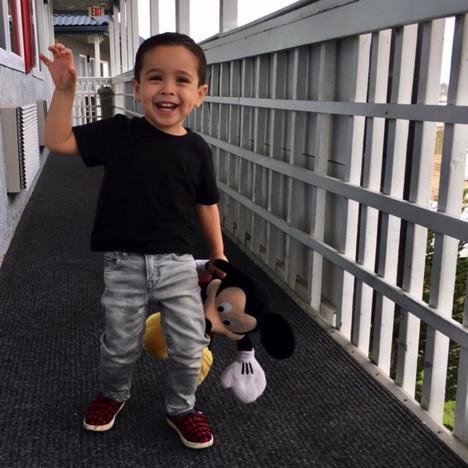I want my son to be happy, confident in his abilities, and confident that he can improve on his weaknesses. To achieve this, he will need a positive mindset. There are a few ways we can teach our children to think positive. I’d like to talk about one particular way, one that doesn’t take much effort or time but will make a huge difference. It requires you to add just one word to your daily dialogue with your children.
That word is “YET.” I am constantly reading and trying to grow as a person and as a parent. And when I saw this powerful short video, by World-renowned Stanford University psychologist, Carol Dweck, posted by Greatschools.org, I had an “of course, that makes total sense!” moment. As parents, we are our children’s first teacher and first supporter. And along with that comes helping to build our children’s confidence and a positive mindset, which is why you’ll want to incorporate the word “yet” into your talks with your children, just like I did with my two year old.
This is how to use the word “yet.” Whenever your child is trying something new and they’re having difficulty with it. Instead of very sweetly saying “Oh, you can’t do that?,” which sounds so final (kind of a sad label to place on them so early on if you stop to think about it), say this instead “Oh you can’t do that yet?,” which lets them know progress will come and they will learn it if they keep practicing…and that’s the power of “yet.” By adding this one word, you are teaching your child that whatever it is that he is attempting, it is a skill that needs to be learned through practice and through ongoing learning. Although they can’t do it right now, they will eventually get it. And this helps children in the development of a positive mindset.
It’s important for our children to learn to stay positive and believe in themselves because one day, they will need to be their own advocate. And if we program their minds (not intentionally or with any malintent of course) with phrases like, “you can’t do this,” “you can’t do that,” then our children will have less confidence to learn certain skills.
So, the next time your little one is attempting to build a tall tower with blocks and he says to you “mommy I can’t do this,” redirect his thinking and answer, “Not yet, sweetie” or “You’ll get it, just keep practicing.”
Your children will learn to be patient and that certain skills will take more time to learn. And you will be instilling an “I can do this” attitude and the self-confidence for them to keep trying.
We parents begin to believe what is coming out of our mouths as well. After time and time of repeating “you can’t do it.” We begin to believe that our children are just not good at something or that they just can’t do it. We need to change our words so we can change our belief in our children. This might seem like a long bridge to cross but maybe this can also be a small contribution in helping to bridge the belief gap, the difference between what students can achieve and what others believe they can achieve. We will undoubtedly believe in our children and set no limitations whatsoever on them! How about that?
As mentioned, I have already began to incorporate the word “yet” with my little guy, Kian, who is very ambitious, so naturally there are a lot of new things he is trying to do and skills that he is trying to use that he hasn’t learned how to do or how to do them well, just yet! And I suggest you begin to incorporate this word with your children, regardless their age, or in your classroom if you’re a teacher, and even with adults because we all need to be reminded that we can do it!

